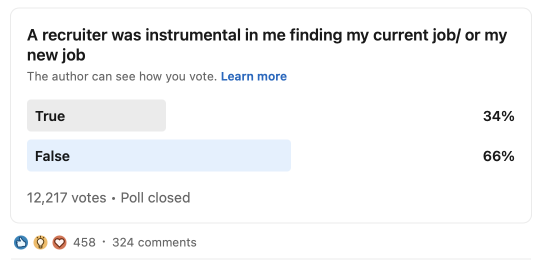
What is a recruiter? There is often confusion among job seekers — at all career levels — about the role of a recruiter or search agency in the job search process.
Are recruiters working for you, or for the company they represent? Can a recruiter find you a job? What will a recruiter want to know and what can you expect a recruiter to do for you?
I’m going to clear up a lot of the confusion around the role of a recruiter and how they can help you in 2023.
The role of a recruiter
There isn’t just one type of recruiter. Recruiters can be in-house, part of a contingency search firm, or part of a retained search firm.
Understanding the differences between them can be helpful in recognizing how they factor into your job search.
In-house corporate recruiter
The in-house corporate recruiter is an internal partner to the hiring managers of a company. Companies that have a strong brand and attract candidates directly to job postings typically use in-house recruiters.
These recruiters face the challenge of having an exceptionally large volume or requisition load and are accountable to hiring managers. In-house recruiters spend a lot of their time being reactive to the demands placed upon them.
Because they are so busy it may be difficult to provide a high level of interaction with candidates. It’s also challenging for an in-house recruiter to participate in the selection process with their company to ensure they get the best hire.
Contingency search firm
Companies typically use contingency search agencies with volume-hiring for lower-level positions, and when speed is important.
A company that needs to fill openings quickly, or may have difficulty recruiting on its own, can use contingency firms while sourcing concurrently.
These recruiters often face the challenge of tapping into the same marketplace for candidates, so they could end up talking to the same people. This can unfortunately create confusion about who clients should be discussing an opening.
A company only pays these search firms if they find a candidate for an opening. They must also agree that the candidate didn’t apply directly to the company but through the contingency firm.
It’s a highly competitive model and one where these recruiters may never receive compensation for their search work.
Retained search firm
Retained search agencies have an exclusive contract with the hiring company to do a targeted search. The retained search firm manages the entire search, including all external, internal and referred candidates for the position.
These recruiters are responsible for the entire process from beginning to end; from determining the candidate profile and search criteria, to determining the offer.
These are usually leadership level or central roles in the company, where the right fit to meet their business objectives is a priority.
Retained search recruiters truly understand the culture, values and environment of the company they represent. They can communicate that effectively to potential candidates.
These recruiters are strategic business partners who use their knowledge of the company to find the best match for positions.
They also have the advantage of being able to connect and gain the interest of passive candidates, or those who may not be actively job-seeking.
Recruiters don’t work for you
It’s important to remember that no matter the type of recruiter, the recruiter represents the best interest of the company. They work for the company, not for you.
The responsibility of the recruitment agency is to find the ideal candidate for a position, and this may not translate into helping you find a job.
In a recent LinkedIn poll, LinkedIn members were asked about what role, if any, a recruiter played in their job search.
The majority of poll participants said that a recruiter wasn’t instrumental in finding their job at all. Among the responses, recruiters weighed in on how exactly they fit into a job search.

What do recruiters do?
“A recruiter’s task at hand is to identify and attract talent to fill their hiring manager’s vacancies,” says Kelli Hrivnak, President and Principal Recruiter, Knak Digital. “A recruiter is a tool in your job search kit, but it’s not always the solution for your career growth.”
“It’s just a fact that job seekers need to understand —we work for the client/company,” states Adam Posner, Founder and Managing Director, NHP Talent Group. “Based on experience, many think it’s a recruiter’s job to get them a job.”
“I get reached out to a lot from job seekers asking for help in their search,” Posner says. “While I am always happy to give advice and keep on my radar, at the end of the day, my time is being paid for by the client/company, and hence where my “loyalties” are as far as where I spend my time.”
How to get noticed by recruiters
Recruiters work for the company, not for you. Their goal is not to find you a job, but the best fit for their company. This means you need to market your value and position yourself in a way to get noticed. Make sure you stand out and show how you’re the best fit for a position.
“Reflect and assess before you need to change jobs,” says Sherry Cadsawan, Founder and Managing Partner of Talence Group. “Ensure you infuse your professional results and successes into your career story.”
“Update your resume, balancing key professional accomplishments and leadership results,” she adds. “Polish your personal brand and modernize your LinkedIn profile. Viewers of your profile make a judgement about you in 3-7 seconds.”
“Above all, remember many jobs come through the ‘hidden job market’,” says Cadsawan. “You need to keep up with your network. Make it easy for us to find you and see what you have to offer.”



